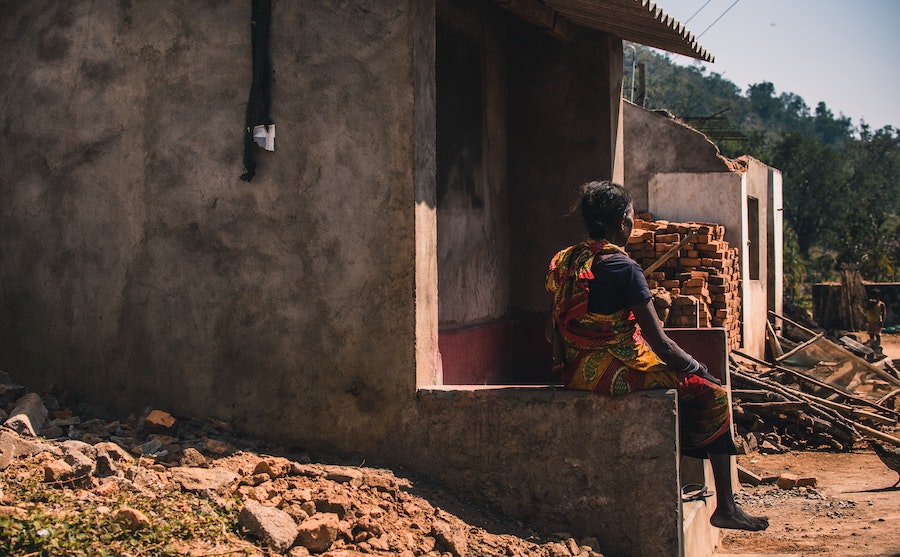Interviews with survivors in northern India reveal that choice, economic security, decent work and access to education are critical for a life free of exploitation.
London, 12 October 2020 – A new study by the University of Nottingham’s Rights Lab, the Freedom Fund and Praxis explores which reintegration services are most effective at sustaining trafficking survivors’ freedom. “The lived realities of sustained liberation in Uttar Pradesh and Bihar, India: an evaluation of survivor experiences” presents the findings of 88 interviews with survivors of trafficking in the Indian states of Bihar and Uttar Pradesh. While there is no single pathway to sustained freedom, respondents emphasised that access to decent employment, education and knowledge of their labour rights were critical for securing long-term freedom.
“Survivors explained that the ability of communities to organise and prevent exploitation was crucial to developing independence and securing long-term freedom,” said Dr Andrea Nicholson and Dr Deanna Davy, researchers at the University of Nottingham Rights Lab and co-authors of the report. “Support from the philanthropic community for the creation and provision of ongoing services for these groups is therefore critical for facilitating sustained liberation.”
The study identified choice, decent income, freedom from debt, and self-representation as critical components of survivors’ sustained liberation. Child survivors said that freedom means being able to go to school, play and plan for their future.
Survivors were interviewed one-to-three years after receiving reintegration support from Freedom Fund partner Non-Governmental Organizations (NGOs). The forms of exploitation respondents experienced included child labour and debt bondage, mainly in brick kilns. The study found that sustained liberation is a likely, but not certain, outcome following rescue, and only if a range of interventions and ongoing support are in place. Without the support provided by NGOs and community groups, many survivors would have fallen back into exploitation. Economic pressures and ill health were cited as the most common barriers to freedom, with the majority of respondents highlighting decent wages as critical to sustaining freedom.
Support from NGOs is most effective when it works with community groups to strengthen self-representation, reducing the risks of exploitation in the future. As one female survivor explained, “Nobody will be able to trouble us if we stay together. We were individual fingers. Now we are a fist.”
The study explored the effectiveness of reintegration services provided to survivors by four frontline India NGOs – Centre Direct; Manav Sansadhan Evam Mahila Vikas Sansthan (MSEMVS); National Institute for Rural Development, Education, Social Upliftment and Health (NIRDESH); and Pragati Gramodyog Sansthan (PGS).
Based on survivors’ responses, the study made the following recommendations:
- Liberation from debt bondage is critical; survivors need assistance securing decent employment with adequate wages.
- Knowledge of labour rights is of immense benefit to survivors, allowing them to avoid future exploitative situations. Community led approaches to ensuring independence and asserting labour rights are necessary to sustain freedom.
- Some survivors are not aware of who to turn to for support. NGOs are encouraged to raise awareness and strengthen community-level knowledge, and future interventions must consider how to sustain long-term independence.
- The Indian government should continue to improve protections for workers in high-risk industries.
- The reach and availability of public healthcare should be improved, since many survivors become indebted due to medical bills.
- The government should consider providing cash transfers, scholarships and education grants to survivors and children from low socio-economic backgrounds.
“Survivors need to be leading the conversation about their own freedom,” said Amy Rahe, Freedom Fund’s Director of North America. “We must commit to listening to survivors for the long-term and be willing to adapt our interventions based on these conversations. Survivors’ lived experiences of sustained liberation must become a focal point of research, and our new report is an important step in that direction.”
About the Freedom Fund
The Freedom Fund is a leader in the global movement to end human trafficking. We identify and invest in the most effective frontline efforts to eradicate human trafficking in the countries and sectors where it is most prevalent. Partnering with visionary investors, governments, anti-trafficking organisations and those at risk of exploitation, we tackle the systems that allow human trafficking to persist and thrive. Working together, we protect vulnerable populations, liberate and reintegrate those who are exploited and prosecute those responsible.
About the Rights Lab
The University of Nottingham’s Rights Lab focuses on research to help end human trafficking. It is the largest group of human trafficking scholars in the world, and home to the world’s leading academic experts on human trafficking. Through its five research programmes, the Rights Lab delivers new and cutting-edge research that provides rigorous data, evidence and discoveries for the global anti-trafficking effort.
About Praxis
The Praxis Institute for Participatory Practices is a development support organisation committed to mainstreaming the voices of the poor and marginalised sections of society in the quest for equity and governance. Praxis engages in participatory research, capacity-building and advocacy to ensure that the most excluded and vulnerable communities have a say in development.



